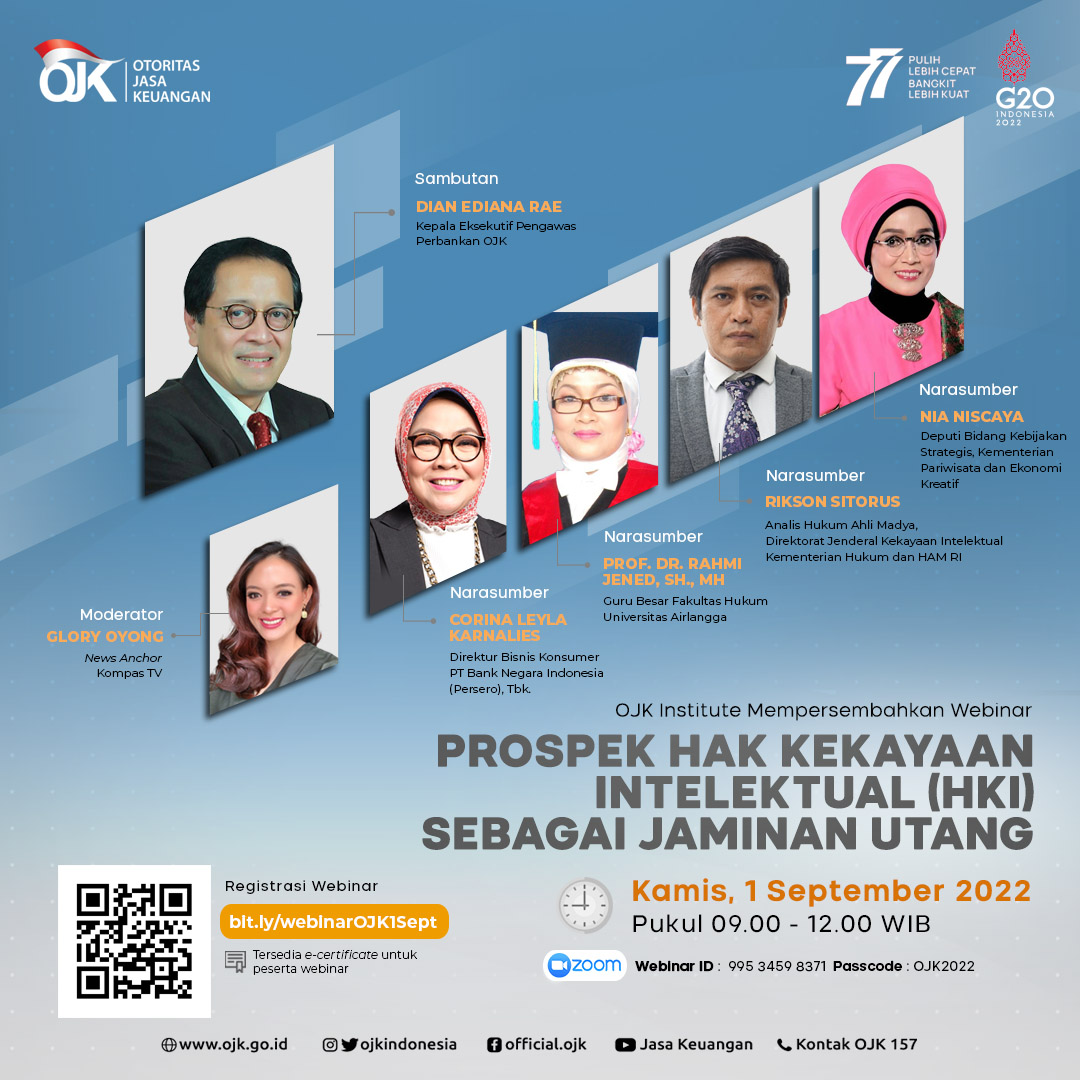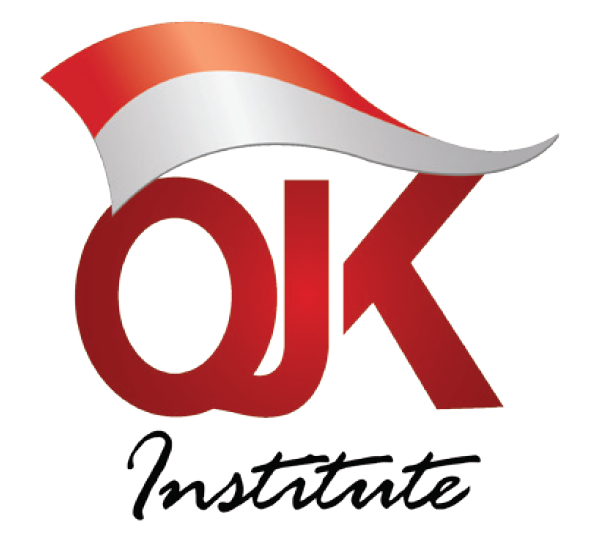Prospects for Intellectual Property Rights (IPR) as Debt Guarantees
- 1 September 2022
- Lintas Sektor
- Online

Teaser
Background
The term Intellectual Property Rights (IPR) or Intellectual Property Rights (HKI) was originally derived from the term Intellectual Property Right (IPR), which is defined as a right to property arising from human intellectual abilities. IPR is an exclusive right guaranteed by law or regulation to a person or group of people over their copyrighted work so that that person or group can obtain or enjoy economic benefits from the results of an intellectual creativity.
Broadly speaking, IPR is divided into 2 (two) parts (Geneva: WIPO 1988), namely:
Copyright, which is the exclusive right of the creator that arises automatically based on the declarative principle after a creation is realized in a tangible form without reducing restrictions in accordance with statutory provisions.
Industrial property rights, namely industrial property rights which include, among other things, patents, industrial designs, brands (trademarks), countermeasures against unfair competition practices (repression of unfair competition), circuit layout designs integrated (layout design of integrated circuit), trade secrets (trade secret).
IPR is basically an asset that has economic value and can be classified as a company asset in the category of intangible assets.
The results of the 13th United Nations Commission on International Trade Law (UNCITRAL) meeting in 2008 stated that, IPR will be used as collateral to obtain bank credit internationally.
The government has issued Government Regulation Number 24 of 2022 concerning the Creative Economy, where in Article 9 it is stated that in the implementation of the Intellectual Property-Based Financing Scheme, bank financial institutions and non-bank financial institutions use Intellectual Property as objects of debt collateral in the form of fiduciary guarantees on Intellectual Property, contracts in Creative Economy activities and/or collection rights in Creative Economy activities
Furthermore, in Article 10 it is stated that Intellectual Property that can be used as a debt guarantee object is Intellectual Property that has been registered or registered with the ministry that carries out government affairs in the field of law and Intellectual Property that has been managed either independently and/or transferred its rights to other parties
According to Law no. 28 of 2014 concerning Copyright (Copyright Law) especially in Article 16 paragraph (3) of the Copyright Law which states explicitly that "copyright can be used as an object of fiduciary guarantees" [1], and Law no. 13 of 2016 concerning Patents (Patent Law) Article 108 paragraph (1) of the Law which states that "patent rights can be used as objects of fiduciary guarantees" [2].
The issue of IPR as collateral for credit or loans to banks has started to appear again since the Government issued Government Regulation (PP) Number 24 of 2022 concerning the Creative Economy on 12 July 2022. The President wants to encourage the Creative Economy to grow further considering that based on the 2020 Tourism Industry Statistics and Creative Economy data , the creative economy is one of the sectors that will become a pillar of the Indonesian economy in the future.
In its implementation, there are still various challenges and obstacles faced, including the limited period of IPR protection, the absence of a clear concept regarding due diligence, valuation of IPR assets, and also no juridical support in the form of regulations related to IPR assets as collateral objects. credit. Based on the things mentioned above, it is necessary to have further studies and discussions regarding the implementation of IPR as collateral in obtaining credit in the financial services sector.
[1] UU No. 28 Tahun 2014 tentang Hak Cipta
[2] UU No. 13 Tahun 2016 tentang Paten
Objective
- Provide an understanding of Intellectual Property Rights (IPR) and their benefits; And
- Assess the prospects for HKI as collateral for debt.
Participant
Speaker
-
Nia Niscaya (Deputi Bidang Kebijakan Strategis Kementerian Pariwisata dan Ekonomi Kreatif/Badan Pariwisata dan Ekonomi Kreatif RI))
-
Rikson Sitorus (Analis Hukum Ahli Madya, Direktorat Jenderal Kekayaan Intelektual Kementerian Hukum dan HAM RI)
-
Prof. Dr. Rahmi Jened, SH., MH (Guru Besar Fakultas Hukum Universitas Airlangga)
-
Corina Leyla Karnalies (Direktur Consumer Banking PT Bank Negara Indonesia (Persero) Tbk)

